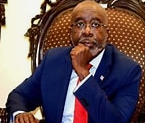“Gentle Agreements”: The Case of Bukongedeh Group of Companies and Former Speaker Kofa

Liberia’s social and economic fabric has long been shaped by an informal practice widely recognized as “gentle agreement” or “mutual understanding.” This age-old tradition, rooted in trust and verbal assurances, continues to influence transactions across society even in matters involving substantial sums of money. Recent developments between the Bukongedeh Group of Companies, a renowned grassroots financial institution, and former House Speaker Fonati Jonathan Kofa have once again drawn national attention to this cultural phenomenon. Allegations by Bukongedeh’s Chief Executive Officer, Mr. Elton Johns, that former Speaker Kofa is indebted to the institution in the amount of US$12,500.00 have raised important questions about legality, accountability, and the role of informal agreements in modern Liberia. Since the emergence of this case, public discourse especially on social and mainstream media has focused on why a proper credit contract or legally binding loan agreement was not executed. While such concerns are legitimate, it is equally important to acknowledge that “gentle agreements” remain a common practice in Liberia. As many testimonies and interviews confirm, the Bukongedeh Group of Companies has extended loans to numerous prominent Liberians and state actors under similar informal arrangements. In this instance, reliance on mutual trust and respect for status may have influenced the absence of a formalized contract. Additionally, what some describe as the influence of “big names” or “heavy hands” within society could have shaped how the loan was handled. From a legal perspective, experts point to the concept of tacit admission a situation where an individual’s communications or actions implicitly acknowledge an obligation. The WhatsApp exchanges reportedly shared between former Speaker Kofa and CEO Johns provide a classic example of such implied acknowledgment. Gone are the days when Liberia’s elite or ruling class could dismiss obligations, intimidate ordinary citizens, or use legal threats as tools of silence. The world is evolving, rights are increasingly protected, and accountability is becoming the new norm in Liberia’s governance and business culture. This case highlights a broader issue facing Liberian-owned businesses: the persistent struggle for survival in an economy where political influence and social status often overshadow fairness and transparency. For too long, local entrepreneurs have been subjected to exploitation by individuals in positions of power, weakening the prospects of indigenous economic growth. As stated in a previous reflection titled “Liberia Needs More Patriots Than Politicians,” true progress will only come when leaders and public figures serve as examples of integrity rather than as sources of exploitation. For a grassroots institution like Bukongedeh, a debt of US$12,500.00 is significant not only in monetary terms but also in its potential to sustain small-scale lending that supports everyday Liberians. Liberia’s cry for sustainable economic development cannot be realized if those entrusted as role models undermine the very institutions working to empower citizens. It is therefore imperative that Bukongedeh’s claim be addressed transparently, lawfully, and fairly. This case serves as a crucial reminder that while “gentle agreements” remain embedded in Liberian society, there is an urgent need to balance tradition with best practices in modern financial governance. Written agreements, transparency, and adherence to legal frameworks must become standard to prevent disputes of this nature in the future. As Liberia continues to evolve, the culture of accountability must be strengthened, ensuring that no individual regardless of status stands above the law. The case of Bukongedeh and former Speaker Kofa is not just about a loan; it is about justice, integrity, and the future of Liberian entrepreneurship.


